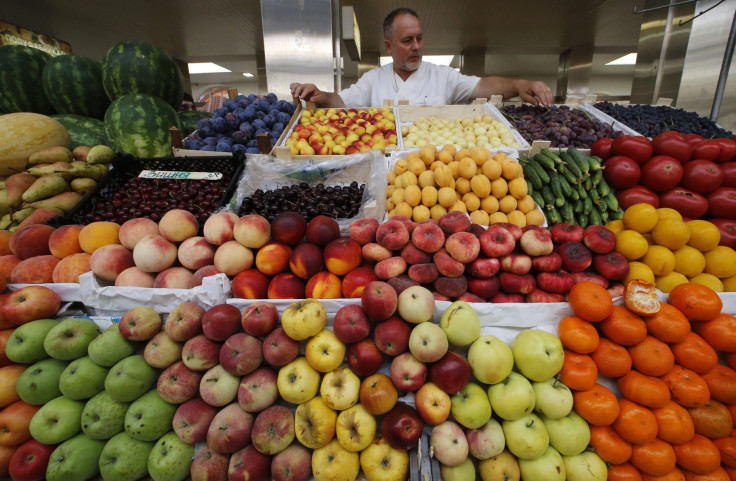Russia Sanctions: Russians Mourn Coca-Cola, Cheese, Fruit And Other Banned Foods

No more Coca-Cola. No more parmesan. No more spaghetti. Russians are mourning their favorite imported food products after President Vladimir Putin announced Wednesday one-year bans and limits on food and agricultural imports from the European Union and the United States, which have recently imposed their own sanctions on Russia over the ongoing conflict in Ukraine. The dueling sanctions signal growing tensions between the West and Russia over Putin's support for pro-Kremlin insurgents in eastern Ukraine. It also could wildly drive up the costs of Russian food because Russians traditionally get about a third of their food supply from abroad.
Russian Prime Minister Dmitry Medvedev provided new details Thursday on the food ban, which includes deliveries of beef, pork, fruit, vegetables, poultry, fish, cheese, milk and dairy products. Russia plans to ban those products from the European Union, the United States, Australia, Canada and Norway for up to one year, but Medvedev said the sanctions could be lifted sooner than that, according to the Wall Street Journal.
It's unclear how the majority of Russians feel about the ban because Russian media is generally controlled by the government. But some Russians didn't seem too happy on social media about sanctions on their favorite goods, including Twix candy bars, hot sauce and strawberries.
The European Union's agricultural exports to Russia totaled 11.8 billion euros ($15.8 billion) last year, while food and agricultural imports from the U.S. amounted to $1.3 billion, according to the Associated Press. Russian officials seem confident the food sanctions will hurt foreign exporters, and not the Russian economy.
As fighting has intensified on the ground in eastern Ukraine, Moscow has massed around 20,000 combat-ready troops on the Ukrainian border and warned of a possible advance, according to Reuters. "We're not going to guess what's on Russia's mind, but we can see what Russia is doing on the ground – and that is of great concern," NATO spokeswoman Oana Lungescu said in a statement Wednesday.
Russia's sanctions came after recent U.S. and EU sanctions on Russian banks and an embargo on exports of military equipment from European suppliers.
© Copyright IBTimes 2024. All rights reserved.




















